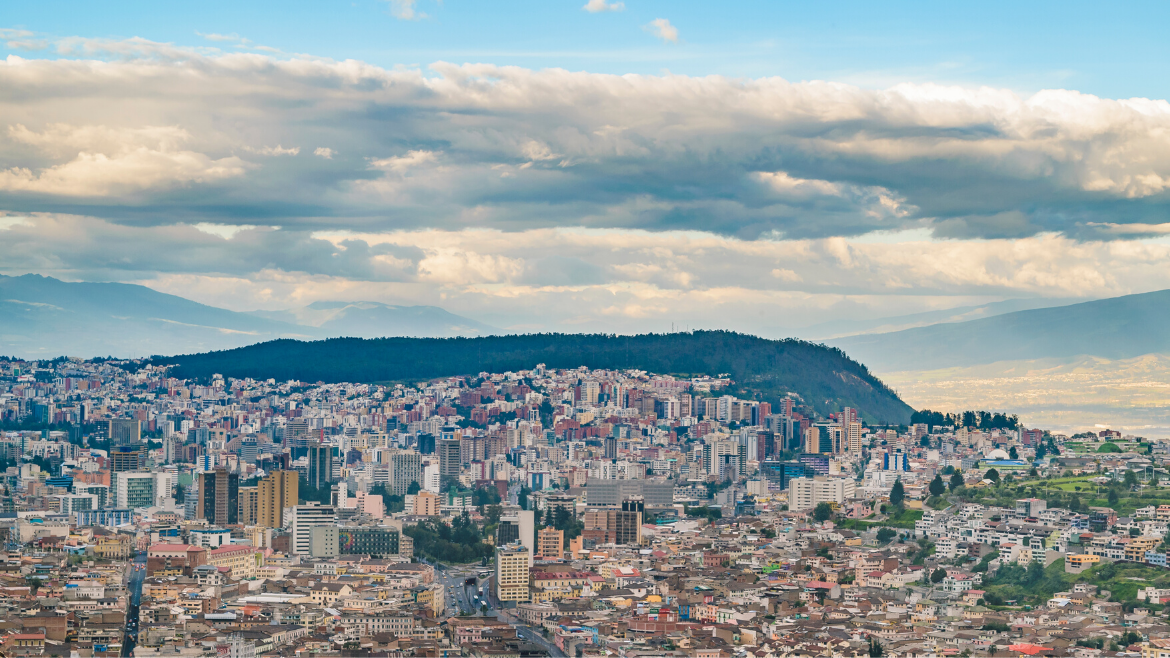Backgrounder Content
- How did REITs emerge and evolve in Ecuador?
- Profile of Ecuadorian REITs
- How can foreigners invest in Ecuadorian REITs?
- Are there any taxes on dividends?
- What is the state of Ecuador’s real-estate industry?
New investment vehicles are riding the wave of Latin America’s growing middle class and ballooning urban population. Real-estate investment trusts (REITs)—an established and top-performing asset in the United States for decades—have surged in popularity, offering opportunities for local and foreign investors alike.
Despite the region’s political and economic turmoil, confidence in real estate’s long-term returns persists. For instance, REITs are just four years old in Ecuador, a dollarized economy, with tax benefits driving their rapid development.
.
How did REITs emerge and evolve in Ecuador?
In 2016, one of Ecuador’s most prominent construction companies, Uribe & Schwarzkopf, launched Brik, the country’s first REIT. It was an audacious move, since legislation at the time did not contemplate such an investment vehicle.
In addition, the country was—and continues to be—home to a complex tax system and other regulations that discourage entrepreneurship, as well as local and foreign investment. Taking these conditions into account, Uribe & Schwarzkopf’s executives designed a resilient and affordable REIT with 21 assets in its portfolio, including offices and retail spaces valued at $11 million.
According to Pablo Cortez, Brik’s executive director, the firm capitalized on the experience with REITs in other countries and had the input of Ecuador’s top legal advisors1. Brik got listed on the Guayaquil Stock Exchange (BVG) first and then on the Quito Stock Exchange (BVQ), paving the way for other entrepreneurs.
Asset manager Fiducia was the second to launch a real-estate trust in Ecuador. Fibra ECU01 went on both stock exchanges simultaneously in Q2 2019. It invests in high-quality offices leased for five and 10 years to well-known domestic and international companies. Nobis, a conglomerate operating in the agricultural, real estate, and industrial sectors, announced another REIT, Nobis 1, in September 2019 (BVQ) and January 2020 (BVG).
.
Profile of Ecuadorian REITs
.
How can foreigners invest in Ecuadorian REITs?
Like any market participant in Ecuador, foreigners must invest through brokerage firms licensed to operate on the BVG and the BVQ.
Each firm advises investors on the available alternatives and sets a minimum amount to invest, starting from $1,000.
The documents required to open a brokerage account are:
- A copy of the applicant’s passport
- An up-to-date bank reference
- A copy of an investor visa or document authorizing the foreign applicant to invest in Ecuador
Although some brokers provide online customer service, investors should send the original documents through conventional postal delivery.
The next step is to transfer the funds to the brokerage firm’s bank account. Then the registered traders make the payment to the stock exchange that holds the desired assets. Finally, the exchange generates an electronic share certificate for the investor and grants access to an online platform to track the performance of the purchased assets.
.
Are there any taxes on dividends?
The Tax Simplification and Progressiveness Act, passed in December 2019, created a special regime to foster REITs. It exempts from income tax those who hold shares of REITs complying with the following conditions:
- The managing firm must not sell any of the fund’s real-estate assets and the fund must be registered with an Ecuadorian stock exchange.
- It must have at least 50 shareholders who are not owners of 49 percent or more of the fund’s estate assets.
- The fund must distribute all dividends among its shareholders.
For those REITs not meeting these conditions, as is the case of Nobis 1, both local and foreign investors pay a 25 percent rate on 40 percent of dividends. The managing firms withhold the tax due when distributing dividends to non-resident shareholders.
Although Ecuador taxes all money transfers leaving the country at a 5 percent rate, foreign investors who neither reside nor participate in another economic activity in Ecuador are exempt from it. They are liable only if they reside in tax havens or jurisdictions with a lower income-tax rate than Ecuador’s.
.
What is the state of Ecuador’s real-estate industry?
Real estate is one of the country’s top five economic activities, accounting for 8 percent of GDP and more than 2 million jobs. During the 2009-2014 oil boom, the industry grew significantly, and the price of land rose by 60 percent in high-demand areas.
An economic crisis in 2015 hurt the real-estate sector, denting its demand since. However, public financial institutions have provided low-cost loans to encourage purchases. As a result, the number of granted mortgage loans more than doubled in the last decade.
The industry grew less than 1 percent per year in 2018 and 2019. The real-estate industry has urged the government to cut red tape for development and lending. For instance, there are a plethora of time-consuming quality norms to comply with before starting to build.
The COVID-19 pandemic has paused all construction since March, although the government has allowed 30 projects to resume activities on April 27. Local authorities and legislators are speeding up discussions on economic measures to boost the industry and encourage foreign investment2.
.
Footnotes
- He told this story at “Investment Talks,” an event at Quito’s San Francisco University on October 18, 2019.
- Information provided by Libre Razón, an Ecuadorian think tank which contacted national legislators and the Quito municipal council.




